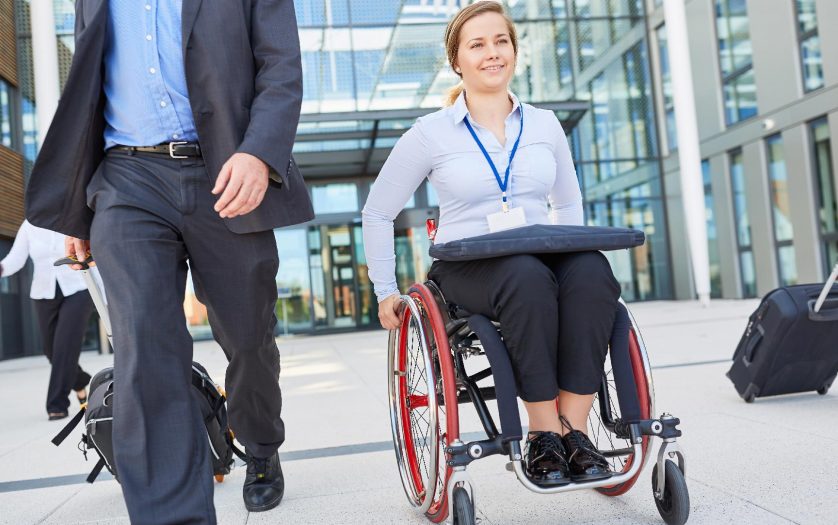
The right to work is enshrined in the United Nations Convention on the Rights of People with Disability, which Australia signed in 2007.
The Convention prohibits discrimination based on disability and ensures that people with disability have the same opportunities, remuneration and working conditions as everyone else.
But fifteen years later, people with disability in Australia are still twice as likely to be unemployed as non-disabled people.
“Australians with disability continue to experience discrimination and violations of their dignity as a result of our antiquated employment systems, social services and workplace attitudes,” said Professor Elizabeth Kendall, Director of Griffith’s Inclusive Futures: Reimagining Disability.
Workforce diversity and inclusion is a practice that requires cooperation between small business, large corporations, universities, governments and individuals in power.
It requires people to act to ensure everyone can engage in meaningful work so Disability Action Week is an important reminder of the need for action.
At Griffith, Inclusive Futures: Reimagining Disability is an initiative that is driving action on employment for people with disability.
“Our focus is ambitious, and we are bringing together a wide range of experts from fields such as robotics, rehabilitation, business, creative arts, policy and governance, alongside our partners from industry, small business and government,” Professor Kendall said.
“Most importantly, our work is driven by people with disability, aiming to solve challenges that prevent meaningful employment.”
Professor Paula Brough who leads Griffith’s research on inclusive work said this year’s theme, Workforce diversity – open-up to opportunity, allows us to recognise and reflect on practices, attitudes and misconceptions that disadvantage people with disability.
“It provides the opportunity to consider what is possible when we harness the enormous amount of untapped skill and expertise that exists in the disabled population,” Professor Brough said.
“Disability Action Week, with its focus on diversity in the workforce, is the perfect time for Griffith University to celebrate some of our projects that are making a difference.”
Dignity Project
One significant project is the Dignity Project where the voice of workers with disability has been amplified to uncover and change the stories where dignity has been compromised by poor practices.
The Dignity Project employs four researchers with lived experience of disability and many citizen scientists.
Enabled.VIP
Aligning with Griffith’s strength in entrepreneurship and self-employment, Enabled.VIP was recently launched by long-term Griffith employee Dr. Gary Allen who lives with progressive MS.
Enabled.VIP is a non-profit organisation that supports people with disability to build their interests, skills and talents into micro-businesses that can supplement their income.
Associate Professor Naomi Birdthistle drives a significant research program on entrepreneurship and is developing educational programs for Enabled.VIP members, supporting them to build their ideas into great income-generating opportunities.
“This platform is a gamechanger for people with disability and Enabled.VIP has already helped many people to start their own business,” Associate Professor Birdthistle said.
Back2Work
Maintaining employment after a significant injury, such as a brain or spinal injury is particularly challenging, and people often spend months in hospital which curbs their ability to perform work that they depend on.
Funded by Motor Accident Insurance Commission and run by Spinal Life Australia, the project shows anything is possible with the right modifications and supports and the right attitude from all parties.
Back2Work is a critical project helping people and employers early in the process of recovery and rehabilitation.
Disability Action Week runs from 26 November to 2 December 2022.








